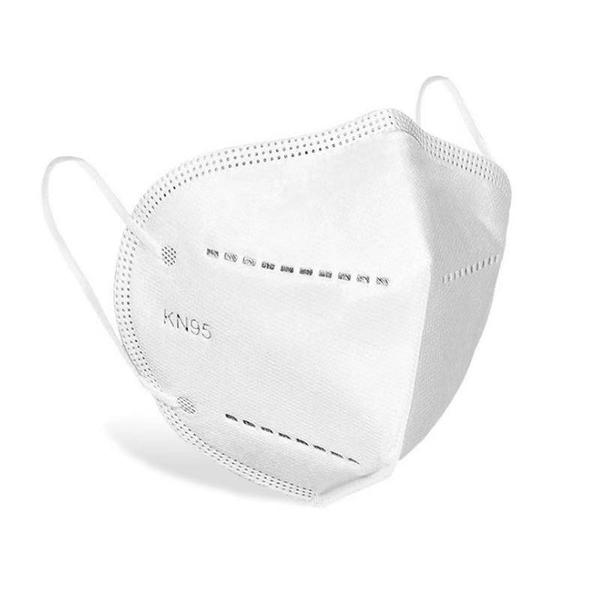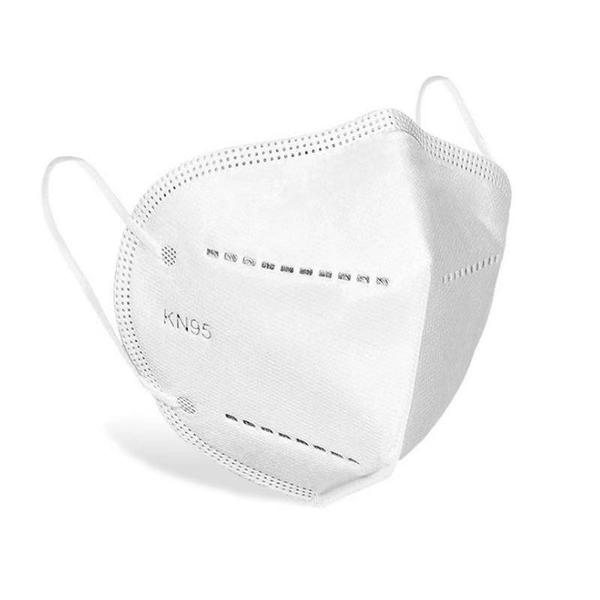
Updated Guidance for Face Masks in Canada | Why KN95 Masks?
The Public Health Agency of Canada (PHAC) recently changed their mask guidance and is now recommending the use of medical masks or respirators (such as KN95 face masks) for individuals:
Previous guidance advised Canadians at higher risk of exposure and severe disease to “wear a well-fitting, well-constructed non-medical mask that includes a filter layer” or “consider wearing a well-fitting medical mask if one is available.”
A well-fitting and properly-worn mask can help contain respiratory particles, and prevent or reduce the amount of infectious respiratory particles an individual inhales. And while non-medical masks generally can help prevent the spread of COVID-19, the PHAC notes that medical masks and respirators (such as KN95 face masks) provide “better protection.”
What are KN95 face masks?
KN95 face masks are the Chinese equivalent of the N95 respirator that is commonly used in the United States and Canada, but what does that really mean? Every country has its own standards for the performance of respiratory protection. Health Canada, the regulator for medical devices in Canada, accepts the U.S. National Institute for Occupational Safety and Health (NIOSH) certification as an appropriate quality standard for N95 masks. In China, they utilize the GB2626 standard.
Both standards require the same level of filter efficiency. They both require masks to capture at least 95% of particles that are 0.3 micron in size or larger. That means that both the N95 respirators and KN95 face masks in Canada are effective at protecting wearers against COVID-19.
KN95 face masks, surgical masks, or cloth masks – which is more effective?
Hands down, KN95 face masks do a better job of filtering airborne particles and protecting the mask wearer than a surgical mask or a cloth mask. Studies have shown KN95 face masks’ superior ability to protect users over other types of masks that are commercially available. KN95 face masks were shown to filter out over 95% of particles while surgical masks and cloth masks were only 42% and 44% effective, respectively.
Also, don’t use masks or respirators with exhalation valves. The PHAC underscores that valves allow infectious respiratory particles to escape and don't prevent the spread of COVID-19.
How do I know if my KN95 face masks fit?
A secure, proper fit is the key to ensuring adequate protection when it comes to respiratory PPE. But when you aren’t used to wearing it on a regular basis, it can be difficult to know what the correct fit feels like!
You will know that your KN95 masks are too small if the ear loops pull on your ears or move/fall off your face when you turn your head. A mask that is too big will have visible gaps along the bridge of the noise and the chin and will slide down your face. A mask that fits correctly will be snug to the face without causing any pain behind your ears.
Comfort is important when it comes to any type of PPE. Masks that are too big or small will be discarded. Head size as well as ear placement can vary greatly from person to person.
What if my KN95 face masks are not sealing?
Just like head sizes, nose sizes and shapes vary. For the best seal, form-fit your KN95 face mask nose clip to your nose before putting it on, then use your fingers on each side of the nose bridge to contour the metal clip tighter to the skin. This will boost air filtering performance and reduce eyeglass fogging. Make sure to look in a mirror for any gaps around the nose or under the chin.
Also, remember that wearing a KN95 face mask is futile if you aren’t wearing it correctly and practising good hygiene. Masks should completely cover your nose and mouth. Wash your hands with soap and water or use hand sanitizer before you put your mask on and after you take your mask off.
Do I need to continue wearing a mask if I’m vaccinated?
It’s important to note that this latest guidance applies to both vaccinated and unvaccinated individuals, even though studies show that the spread of COVID-19 is much less likely to occur among the vaccinated population.
With the World Health Organization rapidly identifying variants of interest, it is likely that the need to protect ourselves will endure through the winter. Face masks are one of the easiest tools we have at our disposal to prevent the spread of COVID-19 variants, with KN95 face masks being one of the most effective options available.
Are KN95 face masks effective against the latest Omicron variant?
The Government of Canada has a monitoring program in place to identify new COVID-19 variants in Canada, such as the Omicron variant.
As the monitoring continues, it is expected that other cases of this variant will be found in Canada and other countries. Canadians are reminded that vaccination, in combination with public health and individual protective measures (such as KN95 face masks), will reduce the spread of COVID-19 and its variants in our communities.
Early data suggest that the Omicron variant may be more transmissible but evidence is limited at this time. International data is continuously collected to determine the impact of this variant on severity of illness and vaccine effectiveness.
Where can I purchase KN95 face masks in Canada?
If you are looking to purchase KN95 masks in Canada, Hazmasters has a complete supply of high-quality KN95 face masks in-stock and ready to ship.


| Call Us : Sales & Service: (877) 747-7117 Corporate: (800) 434-7065 |